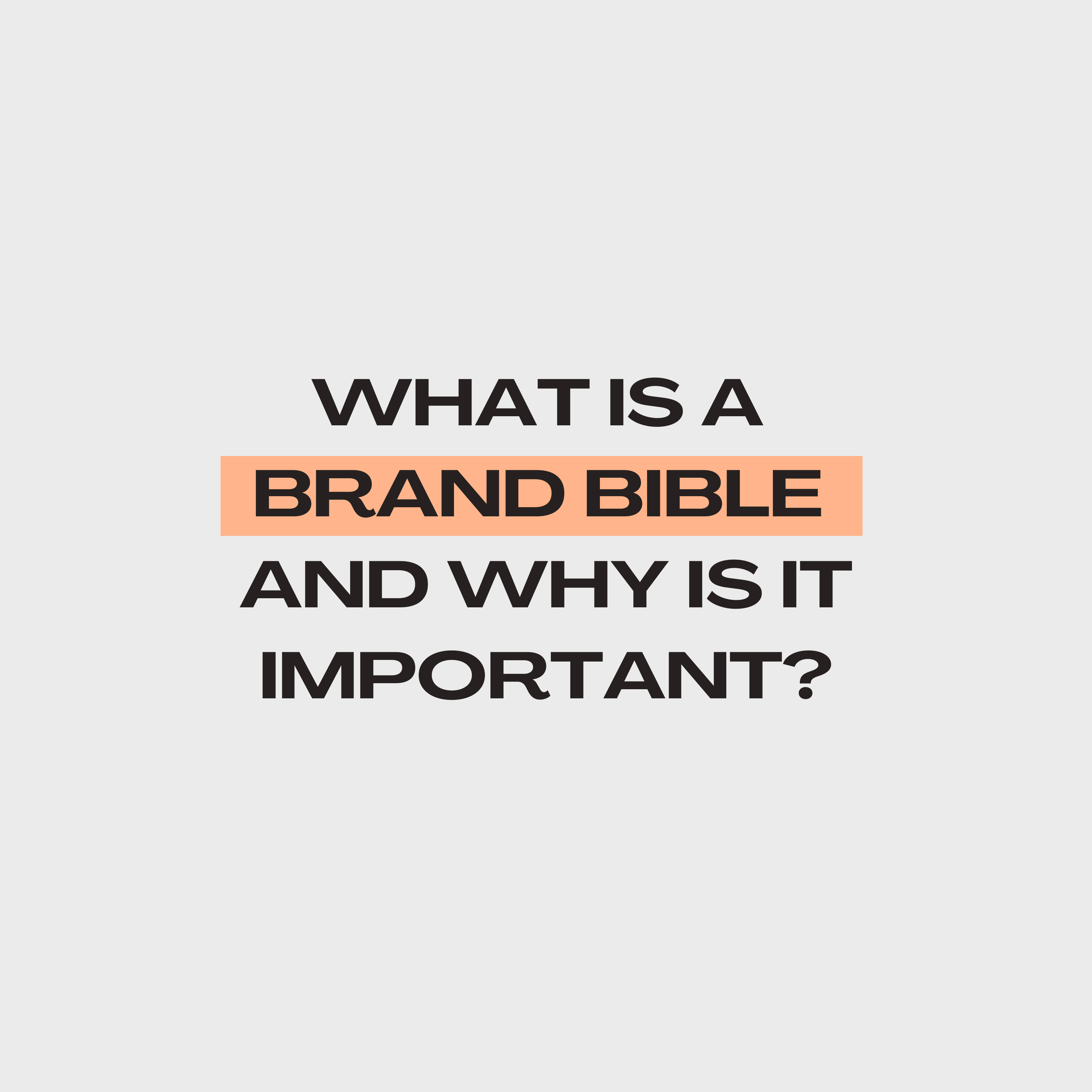At Birdcage Marketing, we know that building a strong brand is essential for success in today’s competitive marketplace. But how do you ensure that your brand is consistent and effective across all channels and touchpoints? One powerful tool to help you do this is a brand bible.
So, what is a brand bible? Simply put, it’s a document that outlines the key elements of your audiences and your brand, including your values, personality, messaging, and visual identity. It serves as a reference guide for anyone who is involved in creating or promoting your brand, from designers and writers to marketers and salespeople.
Now, you might be wondering, why is a brand bible so important for business builders like yourself? Here are a few key reasons:
For business owners and brand managers, a brand bible provides clarity around who you are and how you need to show up.
01 | It Ensures Consistency
Consistency is crucial when it comes to building a strong brand. A brand bible provides guidelines for how your brand should look, sound, and feel across all touchpoints, from your website and social media to packaging design and in-store displays. This consistency helps build trust and loyalty among your customers.
02 | It Saves Time and Effort
When everyone on your team has access to the same guidelines and templates, it saves time and effort. No more debating about which font to use or how to format a social media post. The brand bible provides clear guidelines that everyone can follow, which means you can focus on growing your business instead of getting bogged down in details.
03 | It Facilitates Collaboration
A brand bible also helps facilitate collaboration among your team. When everyone is on the same page about your brand’s values, personality, and messaging, it’s easier to work together to create effective marketing campaigns and content. Plus, if you work with outside agencies or freelancers, having a brand bible ensures that they understand your brand and can represent it accurately.
04 | It Makes You More Confident
The final benefit that’s not as obvious is the power that brand clarity creates in a brand builder. Consider how much more confidently you’ll show up on social media, or instruct your teams to execute if you’re 100% confident in who you are, how you do it and who you do it for. Often, brands are paralysed simply because they can’t clearly articulate their vision. A brand bible solves this problem and therein lies its power.
So, what should you include in your brand bible? Here are some key components:
01 | Target Audience
Understanding your target audience is essential for creating effective marketing campaigns. Your brand bible should include details about who you’re trying to reach, their needs, and pain points.
02 | Messaging
Messaging includes your tagline, key messages, and tone of voice. It should be consistent across all channels and touchpoints.
03 | Brand Story
Your brand story is the foundation of your identity. It includes your history, mission, values, and vision.
04 | Visual Identity
Your visual identity includes your logo, color palette, typography, and imagery. It should be consistent across all marketing materials.
Creating a brand bible takes time and effort, but the benefits are well worth it. By providing clear guidelines for how to represent your brand, a brand bible helps ensure consistency, save time and effort, and facilitate collaboration. At Birdcage Marketing, we’re here to help you create a brand bible that reflects your unique brand identity and sets you up for success.
To book a Brand Bible with us, book a discovery call and let’s chat.


